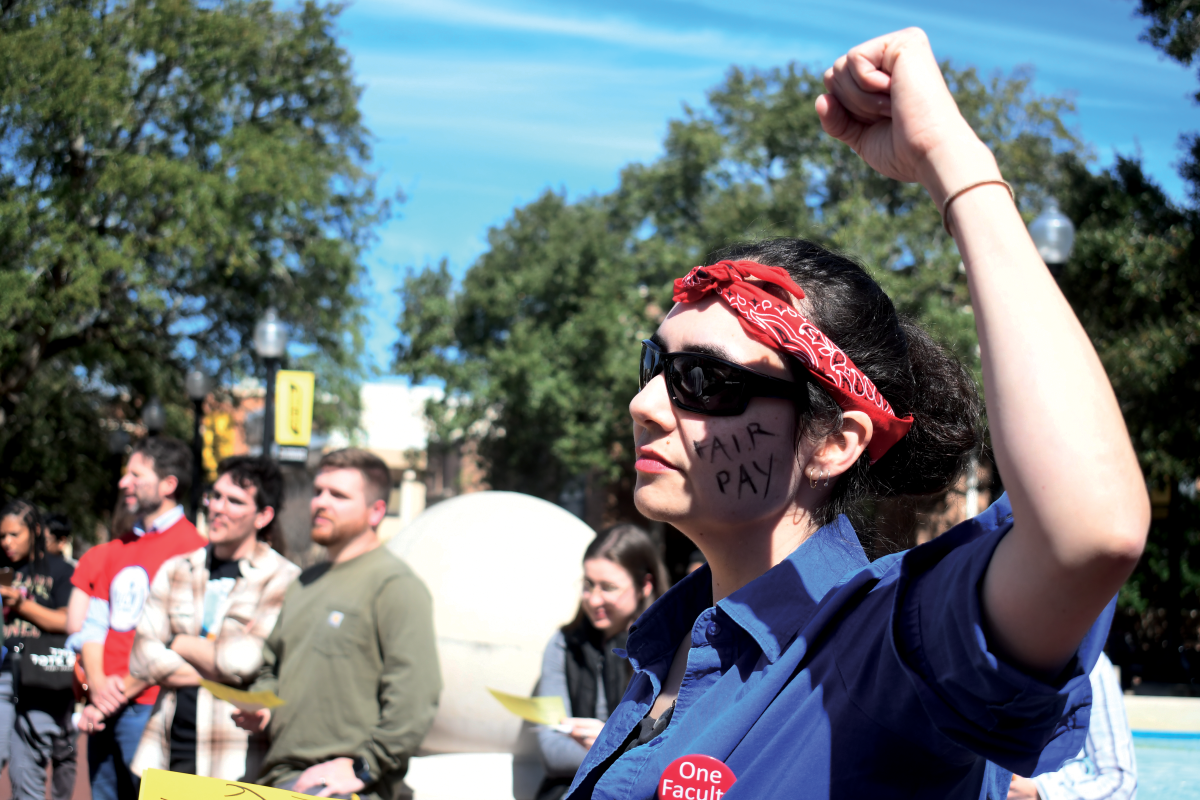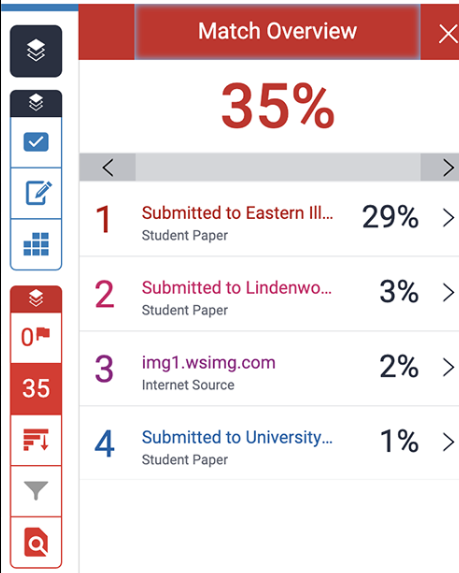USM graduate students, faculty, and staff continue to push for fair pay.
On Thursday, Feb. 15, a coalition of faculty, staff and graduate students rallied at Shoemaker Square to raise awareness about the lack of fair pay. The Southern Miss Coalition for Fair Pay held the event. Their goal was to gain lawmakers’ attention to the need for a wage increase. The coalition includes members of the American Association for University Professors, United Campus Workers, the Faculty Senate and the Gulf Coast Faculty Council.
The rally included a speech from the president of AAUP, Irene Mulvey. Faculty members Dr. Michelle McLeese and Dr. Joshua Bernstein led the crowd in a series of chants.
The root of the fair pay problem may lie beyond the university’s administration. Mississippi’s colleges and universities face many financial challenges in the coming years.
Over the years, Mississippi’s state legislature devotes less and less money to higher education. The majority of funding for colleges and universities now comes from tuition. Mississippi Today reported that members of the Mississippi Institutions of Higher Learning met at the capitol last week. They listed inflation, rising healthcare premiums, and state pension issues as other factors that led to wage stagnation.
Schools may be hesitant to raise tuition because of the coming enrollment cliff. The “enrollment cliff” means that the number of high school graduates applying to college will drop, creating more competition for students. In-state colleges and universities are having to strategize on how to recruit and maintain students.
This is not the first time that Southern Miss’ faculty, staff, and graduate students raised awareness about their lack of pay, and it may not be the last. Last semester, a coalition of faculty, staff and graduate student groups held a rally for higher wages. They argued that their wages should increase to keep up with inflation and the rising cost of living.
Dr. Jeremy Scott, one of the rally’s organizers and a member of USM’s AAUP, illustrated a consequence of the issue.
“So when we’re coming in, we’re being offered a low salary. As time goes on, if we’re not getting regular raises, we’ve run into what’s called compression and inversion,” he explained. “…we’re still making the same or nearly the same as when we got hired, and then new people coming in and getting a new salary that’s better because they’re adjusted over time.”
One consequence of the pay issues is the loss of talent. That includes people like Chris Ellington, who used to work as a multimedia technician at iTech Equipment Services.
Ellington started working at the University of Southern Mississippi in 2017. He left in 2022. He returned to the position in 2023 with the promise for a pay raise and correcting the issues that led him to quit initially. He says that while his pay did increase, the issues were not corrected.
Ellington cites low pay, lack of appreciation from iTech and the university’s administration, and lack of help from Human Resources as his reasons for leaving. He said he tried to rectify these issues for years, but was met with a lack of understanding.
Despite his issues, Ellington still showed respect for his former coworkers.
“I will miss being here on a lot of levels and hope I left it better than I found it,” he said.































